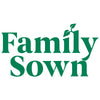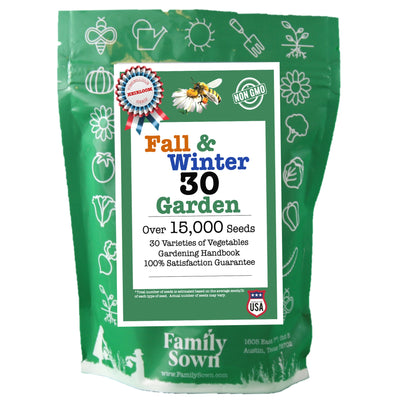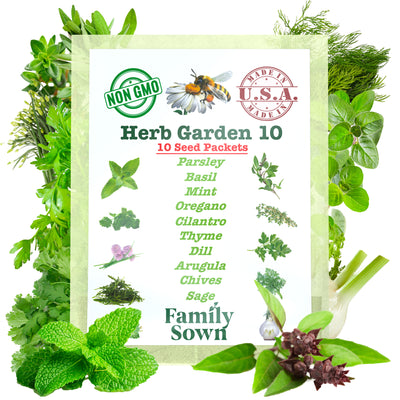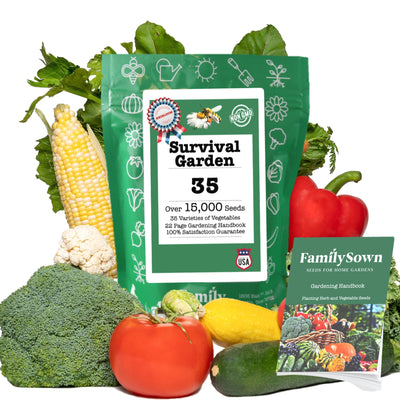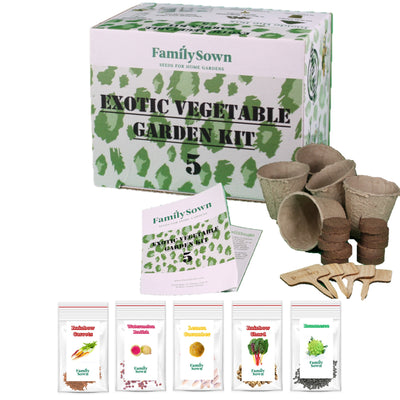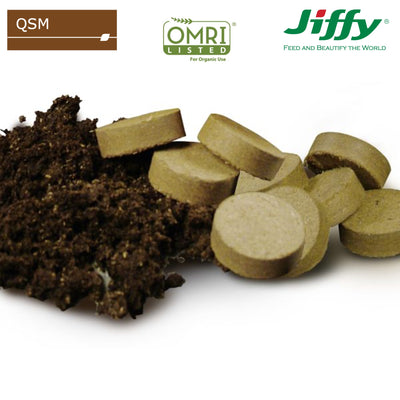FAQ
All of our seeds are sourced in the US and hand packed by fellow Americans in Austin, Texas.
Our seeds are not certified organic. The seeds you buy from us are not meant for consumption. Certified organic seeds are important if you're making food with the seeds themselves (e.g. you're going to eat the seeds, not plant them). However, you can grow vegetables that can be certified organic from almost any seeds that are non-treated. For more information, read the USDA requirements for certifying seeds as organic.
A small fraction of the certified organic vegetables you buy in the store are grown from certified organic seeds. The methods used to grow your vegetables are what's important in that regard. We recommend using organic methods whenever possible.
There's a card inside the package that includes the following table. These are the varieties included in our Survival Garden collection for sale 1/31/21.
Vegetable: Variety: Germ%
Beet Detroit Dark Red 80%
Broccoli Waltham 87%
Brussel Sprouts Long Island 90%
Cabbage Golden Acre 85%
Cantaloupe Hale’s Best 90%
Carrot Danver 85%
Cauliflower Snowball Y 85%
Celery Tall Utah Improved 87%
Corn Bantam 90%
Cucumber Ashley 85%
Eggplant Black Beauty 82%
Jalapeño Early 85%
Kale Siberian 85%
Lettuce Iceberg 85%
Lettuce Mesclun Mix 80%
Lettuce Black Seeded Simpson 85%
Lima Henderson Bush 85%
Okra Spineless 85%
Onion Long White Bunching 85%
Parsnip All American 80%
Pea Alaska 90%
Pepper California Wonder 85%
Pole Bean Tendergreen Improved 85%
Pumpkin Jack O Lantern 85%
Radish Cherry Belle 85%
Spinach Bloomsdale 85%
Sunflower Mammoth 85%
Swiss Chard Giant Fordhook 85%
Tomato Beefsteak 85%
Tomato Cherry 85%
Turnip Purple Top 85%
Watermelon Sugar Baby 85%
Yellow Squash Crookneck 85%
Zucchini Squash Black Beauty 90%
Seeds of different vegetable varieties are different sizes. For example, corn seeds are pretty big. You'll get about 10 corn seeds per pac
Seeds are alive!!! If your seeds retain any moisture at all, they will need to breathe oxygen or they will die. Some research has shown that there is a tipping point beyond which seeds are sufficiently dry and are no longer "breathing", in which case it is probably safe to vacuum seal them for storage. That research is inconclusive, so we give our seeds a little room to breath and recommend you do the same. You should store seeds in a cool, dry and dark place. Keep them alive and keep them safe from bugs, rodents & funguses. Humans have been storing seeds for thousands of years. Don't try to reinvent the wheel.
The Family Sown Survival Garden Collection for sale in January of 2021 is contained inside a resealable mylar stand up pouch. We chose this packaging because it will protect your seeds from moisture and sunlight. It's up to you to keep them in a cool, safe place. The stand up pouch is heat sealed, but not vacuum packed. Each individual seed variety is packed in a resealable zipper bag with a full color label and picture of the vegetable or herb the seeds will grow.
1) Our packaging is designed for long term storage. The collection package is a resealable mylar bag that should keep out external moisture and shield your seeds from sunlight. It's up to you to keep them cool and dry.
2) With few exceptions, all of our seeds are less than 1 year old and have germination rates of 85%+. Family Sown wants you to start from the best possible position for long term success. That said, germination rates for all seeds (not just Family Sown seeds) will decline over time. Different varieties of seeds will decline at different rates. Here's why: Seeds don't expire, per se. All seeds are living, dormant plant embryos. They contain resources that keep the embryo alive until external triggers activate the seed's instinct to germinate and grow. Proper storage will repress the drive to germinate, which in turn reduces the resources the seed will consume and extend the seed's life. However, all seeds have finite resources and will eventually die unless they obtain access to external resources by growing into a plant. Some seeds can last longer than other without germinating. The Family Sown survival garden collection contains 34 varieties of seeds and over 15,000 total seeds. Some varieties will maintain very high germination rates for many years and others will begin to decline after 1 or two years. If anyone tells you differently, make sure to get plenty of the magic potion they're using to defy nature or you won't be able to duplicate their results.
Yes
We selected the varieties in our collection to be good candidates for all 10 USDA hardiness zones. I would be happy to provide you with a more specific answer about any particular variety, but don't have enough space here to address all 39 varieties you'll receive with your Family Sown Survival Garden collection.
Detailed instructions for planting, growing and harvesting all of the herbs and vegetables sold by Family Sown are available in the Gardening Guide section of the Family Sown website. In addition, we have recently published a 24 page Gardening Handbook that includes all the basic information you need to plant all the seeds in our collections. QR codes for each variety of seeds in the Gardening Handbook provide additional instructions via our online Gardening Guide. We are happy to send a printed copy of our Gardening Handbook to anyone who has purchased seeds from us.
Germination rates vary by seed variety and batch. Each collection contains a card with the germination rates of the seeds contained within. Family Sown seeds are top quality. The germination rate of the seeds we sell typically range from 80% to 90%, with the vast majority being 85%.
Yes, but we don't recommend it. Any moisture in seeds will expand when it freezes (water expands when it freezes), which could crack the shell of the seed and/or kill the tiny plant embryo lying dormant inside. The big seed vaults go to significant effort to make sure seeds are completely dry before putting them in cold storage. Even Svalbard, the word's largest and most sophisticated "seed vault", acknowledges that some seeds can't be frozen and the effectiveness of freezing seeds varies dramatically by variety (see below). We recommend storing seeds in a cool, dark, dry place. Your Survival Garden collection is packed in a resealable mylar bag that should protect your seeds from outside moisture and light. However, you need to keep them cool.
From Svalbard:
How long can seeds live in a frozen state?
This varies from crop to crop. Some crops will survive for decades, but others such as sorghum appear capable of surviving for thousands of years in cold storage. Eventually, all seeds will lose the ability to germinate and die. Before this happens, seeds are taken from the stored samples and planted. Fresh, new seed is then harvested and placed in storage, perpetuating the original variety.
What crops can't be stored as seed?
Most potato, cassava, and banana varieties can only be conserved in field collections, tissue culture, or cryopreservation (in liquid nitrogen). A number of fruits and berries and some tuber crops also cannot be conserved by freezing seed, because there is no seed, or the seed just cannot be frozen and still remain viable.
Orders placed on the Family Sown website are typically fulfilled within 1 business day, and should arrive at your door within 3-5 days. If you purchase expedited shipping, the delivery time will be what you pay for (e.g. 2 day, overnight, etc).
All seeds sold by Family Sown are non-GMO. GMO stands for Genetically Modified Organism. Developing genetically modified strains of plants is very expensive and is mostly limited to mono-crop farming (e.g. corn, soy beans, etc).
It would be cost prohibitive to test the dna of all the seeds we purchase in order to verify that they are non-GMO. However, anyone who tried to pass off GMO seeds for an heirloom variety would quickly be discovered when those seeds began to produce vegetables that were not as advertised. Furthermore, most GMO seeds are patented "technology" and the patent holder would not tolerate their products being sold without being paid the appropriate royalties.
Yes. All of the seeds sold by Family Sown are open pollinated, so you can harvest your seeds and plant them again to grow the same plant.
All Family Sown seeds have excellent germination rates. Herbs in general do well indoors because they are more tolerant to limited sunlight than many other plants (e.g. most vegetable plants thrive in full sun with no shade).
Family Sown is not affiliated with or endorsed by AeroGarden, but we think AeroGarden make great products and we encourage the use of any quality product that will improve the success and yield of your garden. Family Sown seeds are quality seeds with high germination rates and should do well in an AeroGarden system.
The seeds included in our Salad Garden collection (5 types of lettuce, Kale, Spinach and Arugula) are all ideal for starting leafy greens in an AeroGarden seed starting system, which includes a plastic seed starter tray, biodegradeable Grow Sponges, plant food and a Seed Starting and Transplanting Guide. You will insert the seeds in the Grow Sponges and follow the directions provided by AeroGarden.
